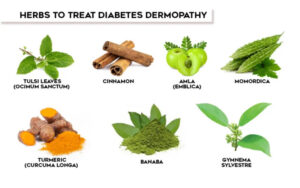Goat Milk Vs Cow Milk who win the battle and wich offer you the best health benefits. Cow’s milk substitutes such as oat, nut, and pea protein have gained popularity. But is cow milk the greatest choice for people who want and can handle dairy? Or should people be aware of goat milk?
Registered dietitians were consulted by mbg to examine the advantages and disadvantages of cow and goat milk. What they have to say about the two dairy beverages is as follows.
Goat milk is one of the most popular types of milk drank worldwide, despite being a relatively new dairy choice in the US. After cow and buffalo milk, it comes in third for production value. Most of us are aware that goat milk is used to make cheeses like feta. It is becoming more and more popular as a substitute for cow milk. But what actually distinguishes the two? Are any of these better than the others? The moment has come to compare goat milk to cow milk.
read also: Basil Vs Oregano — What’s The Difference?
What is goat milk?
Goat milk is one of the most popular types of milk drank worldwide, despite being a relatively new dairy choice in the US. After cow and buffalo milk, it comes in third for production value. Most of us are aware that goat milk is used to make cheeses like feta. It is becoming more and more popular as a substitute for cow milk. But what actually distinguishes the two? Are any of these better than the others? The moment has come to compare goat milk to cow milk.
goat milk vs cow milk nutrition chart
What are the nutritional stats of goat milk and cow milk?
These are the standard nutrients for 1 cup of whole goat’s milk, according to the USDA:
- Calories: 168
- Fat: 10.1 g
- Sodium: 122 mg
- Carbohydrates: 10.9 g
- Sugar: 10.9 g
- Protein: 8.69 g
- Calcium: 327 mg
- Magnesium: 34.2 mg
- Phosphorus: 271 mg
- Potassium: 498 mg
read also: Horseradish Nutrition Facts and Health Benefits
What are the nutritional stats of goat milk and cow milk?
Meanwhile, here’s what a one-cup serving of whole cow milk offers, per the USDA:
- 160 calories
- 8 grams of protein
- 9 grams of fat
- 11 grams of carbohydrates
- 11 grams of sugars
- 30 milligrams of cholesterol
goat milk vs cow milk: How are cow and goat milk different?
Goat milk has slightly more fat and calories than cow’s milk, but it also has more vitamins, minerals, and protein. in this Goat Milk Vs Cow Milk battle one thing for sure these two milk have high protein level.
Their differences in flavor are more pronounced. According to Largeman-Roth, “Goat’s milk has a characteristic ‘farmy’ flavor that might take some getting accustomed to, whereas cow’s milk is quite neutral.” “Instead of a glass of milk, you could prefer to introduce it to youngsters in a smoothie.”
read also: 4 High-Protein Foods for Weight Loss After 40
The size of the fat globules in goat milk may also make it simpler to digest than cow’s milk. The size of the fat globules in goat’s milk are smaller than those in cow’s milk, making them easier for the digestive system to process even if the overall amount of fat is the same, according to Largeman-Roth.
Goat Milk Vs Cow Milk: Is Goat Milk Better For Your Health?
The popularity of goat milk increased as a healthier substitute for cow milk. There may be some validity to this, according to studies. Researchers at the University of Grenada found that calcium-fortified goat milk prevented anemia better than calcium-fortified cow milk in studies on animals that were later published in the Journal of Dairy Research.
In a 2017 review that was written for the Journal of Dairy Science, goat milk was compared to cow milk. It was discovered that goat’s milk was similar to human milk, had a larger percentage of tiny fat globules, and formed curds more easily. It has many allergenic characteristics. Goat milk has a more uniform distribution of fat because the fat globules are smaller.
read also: Vanadyl Sulfate Benefits,Uses And Side Effects (Vanadium)
Is Goat Milk Safe For Children?
According to a research that appeared in Evidence-Based Research in Pediatric Nutrition, neither goat milk nor cow milk exhibited any discernible nutritional advantages over the other. Goat milk that has not been changed is not safe for children, like cow milk. This is due to the milk’s high protein and mineral content and low folate concentration.
For follow-on formula to be appropriate for newborns, 1.8 g/100 kcal of minimum protein content for cow and goat milk is required, according to the European Food Safety Authority. Children’s goat milk is typically supplemented with extra nutrients, including folic acid and vitamin D.
Is Goat Milk Safe For People With Allergies?
One of the widespread misconceptions regarding goat milk is that allergy sufferers prefer it to cow milk. Research, meanwhile, does not back this up. According to a double-blind, placebo-controlled study that was published in the Journal of Allergy and Clinical Immunology, goat milk is not a suitable replacement for cow milk for kids who have CMA or an IgE-mediated cow milk allergy.
In fact, according to a different research in the journal Allergy, the symptoms of a goat milk allergy might be more severe than those of a cow milk allergy. Goat milk may cause allergies in older kids and manifest later than cow milk.
But what does goat milk taste like?
Consider the flavor of goat cheese if you’re wondering, as we were, how goat milk compares. Goat milk is unmistakably, well, goaty, in contrast to cow milk, which is mild, neutral, and creamy. It could take some getting accustomed to because it is acidic and grassy.

